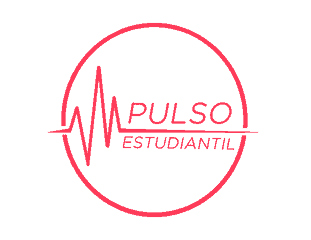Here is a summary of the news you might have from Pulso Estudiantil during the last week:
UPR Arecibo will distribute technological equipment for its students and professors
Due to the COVID-19 emergency and social distancing protocols, students and professors face multiple difficulties with online classes. In response, UPR at Arecibo has been receiving requests from students and faculty members since September 14 to provide laptops and hotspots for up to 300 students and professors in need. UPR at Arecibo will also allow students to stay inside their cars in the parking lot to use the university’s Wi-Fi connection.
The purchase of the equipment was made with CARES Act funds assigned to UPR at Arecibo in order to help alumni that don’t have the required tools for online courses.
History of the Cry of Lares: the causes and the events
Last Wednesday was the 152nd anniversary of the first armed revolt for the independence of Puerto Rico, known as the Grito of Lares.
In 1868, the insurrection was planned by Segundo Ruiz Belvis and Ramón Emeterio Betances against the Spanish government in the island mainly for the following reasons:
- The Spanish government and its tyrannical power over Puerto Rico.
- Slavery and a caste system of racial division that limited people’s rights according to their parentage.
- The Regimen of the Laborers Booklet and how it exploited Puerto Ricans that did not own land.
- Suppression of press and free speech.
The insurrection ended with 20 dead Puerto Ricans and hundreds of incarcerated and tortured citizens. Every September 23, their fight against oppression is commemorated in Puerto Rico.
Know the History of RUM on its 109th anniversary
The University of Puerto Rico at Mayagüez (RUM) was founded on September 23rd of 1911 as the College of Agriculture, officially marking now its 109th anniversary. Traditionally, its founding is attributed to D. W. May, José de Diego and Carmelo Alemar.
In 1942, the College created the Agriculture, Engineering and Sciences colleges, adding Arts to its academic program in the 1950’s, and the College of Business Administration in 1970. The College of Agriculture and Arts, as it was formerly known, officially became part of the University of Puerto Rico in 1966.
The Mayagüez campus became the only one in Puerto Rico with its own School of Agriculture and a graduate program in Marine Sciences. Since its foundation in 1911, it has contributed significantly to technology, agriculture and science, representing Puerto Rico at an international level.
Academic alliance inaugurated with Ponce School of Medicine
The University of Puerto Rico in Ponce (UPRP) implemented a new binary program that will allow students from the Biomedicine major to graduate in fewer years of studying. This program was created through an alliance with Ponce Health Science University (PSHU).
It will consist of studying three years in UPRP, and then, the student will transfer to the PSHU to finish their doctorate degree in Medicine or in Philosophy of Biomedical Sciences. Students will be able to apply for the Biomedicine concentration and they will be evaluated to be accepted in the rigorous program.
10 recommendations for communicating with deaf people
Since Juan Dalmau publicly addressed the deaf community through sign language at a televised political debate, more people have been interested in understanding it.
In order to engage in effective communication with deaf people, Pulso Estudiantil has composed a list of the following ten tips:
- Educate yourself about the deaf community and its language
- Take off your mask to allow deaf people to see your expressions
- Don’t yell, raise your voice or exaggerate your lip movements because these actions can distort your expressions and it is disrespectful toward deaf people
- Address and face the deaf person you are communicating with, even if there is an interpreter present
- Respect deaf culture and its social norms
- Look for a way to understand and be understood by the deaf person and include them in conversation
- Remember that not all deaf people are the same or communicate in the same way
- Avoid chewing gum and throwing objects at deaf people
- Don’t be afraid or embarrassed of not knowing sign language perfectly
- Be less judgemental and have more empathy towards the deaf community
IUPI and Casa Pueblo create digital historic archive
Casa Pueblo, in Adjuntas, and the University of Puerto Rico (UPR), Río Piedras campus have collaborated to create the Casa Pueblo Historic Archive.
This project seeks to develop a digital archive to preserve digital documents, audiovisual materials and historic artifacts generated by Casa Pueblo and the communities of Adjuntas.
The Center for Digital Humanities Caribbean Diaspora (CHDDC, in Spanish) and four professors from the Río Piedras campus will work on the project for two years with a donation of $37,760 from the UPR.

















